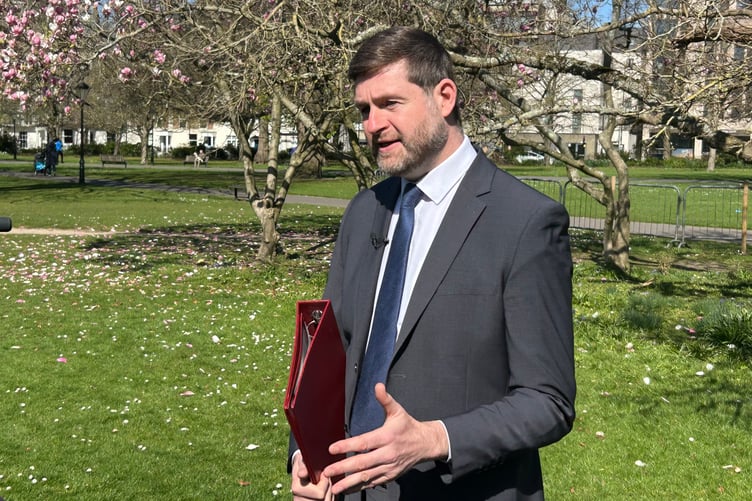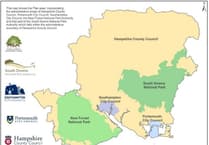The government “embraces” elected mayors having a big set of responsibilities, a minister has said.
Concerns have been raised that the proposed structure for devolution in Hampshire and the Solent will give too much control to a single person.
As part of the government’s devolution priority programme, a new mayoral combined county authority (MCCA) for the region is set to be created, with the first election taking place in May 2026.
The mayor is likely to have responsibility for areas such as skills, transport and strategic planning. Funding arrangements are yet to be set out but powers will be transferred down from Westminster.
Minister of State for Local Government and English Devolution Jim McMahon visited Southampton this week to promote the ongoing public consultation on the plans, which closes on April 13.
When asked about worries that mayors will have too much power, Mr McMahon told the Local Democracy Reporting Service: “We embrace strong mayors.
“We have had quite an underdeveloped mayoral model in England. It’s been a bit sporadic.
“The powers that mayors have in different places are quite different.
“The role of even council leaders around the table in different places can look and feel a bit different, and what we want to do is to see complete universal coverage of mayoral combined authorities that will be strategic authorities across the whole of England.
“Our commitment in return is that it is not just about widening devolution, it is about deepening devolution.
“All the things that matter to people. Transport, housing, skills, the decent jobs that provide a good standard of living for working people and what devolution ultimately can bring when you tie all those pieces together.
“When you build that around places and communities that’s when you get the added value from it.”
The Labour minister praised council leaders in the region for successfully getting on the “massively oversubscribed” priority programme.
He said this showed a level of ambition and successful partnership working.
On the benefits of a MCCA, Mr McMahon said: “What devolution offers is for local leaders to be able to drive the destiny of their places and for local communities, who have the skin in the game, to be able to craft that together, and that’s what devolution means.”
A request to postpone next month’s elections by Hampshire County Council and Isle of Wight Council for 12 months, alongside other areas on the priority programme, was approved by the Ministry of Housing, Communities and Local Government in February.
This has been criticised by some political parties, while the Government said it was to allow regions to progress devolution to an “ambitious” schedule.
Mr McMahon said: “We are working to a very tight timetable deliberately.
“We don’t want to spend the next five, 10 years talking about the shape, size and function of councils or whether or not we should or shouldn’t have a mayor.
“We think that the model has been tried and tested.
“We think that mayors add a huge value but we also have a responsibility to local people to create councils that are sustainable and the last 14 years have been very, very difficult for local government.”
The devolution priority programme is separate to work taking place on local government reorganisation, which will see council mergers create larger unitary authorities delivering all council services.





Comments
This article has no comments yet. Be the first to leave a comment.